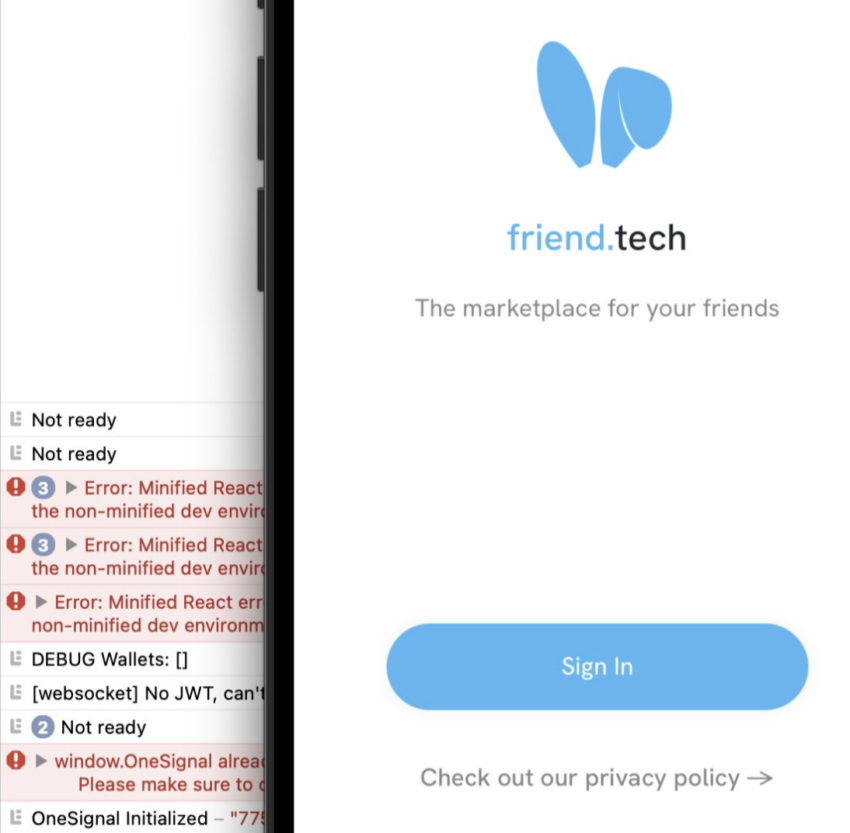Crypto social media platform friend.tech has denied it leaked a database of 101,183 Ethereum (ETH) addresses. The breach reportedly allowed the decentralized finance (DeFi) protocol to impersonate users on social media.
The breach claimed to link the X (Twitter) IDs of affected members with their ETH wallets. The platform enables users to exchange tokenized shares with their influencers.
X (Twitter) Users Voiced Doxxing Concerns Well Before Leak
Several users whose ETH addresses were compromised said they revoked access. The link to the leaked database has since broken.
Four days before its launch friend.tech announced a new bridge to fund user wallets from Ethereum balances. On Aug. 12, a Twitter user with the handle “@w1nt3r_eth” flagged concerns that friend.tech logged ETH transfers.

The project team said the user misidentified “the printing of the user’s public wallet address in their browser” as an attempt to log a transaction. They also claim friend.tech’s wallets need more than one signature to spend crypto.
But friend.tech denied anything sinister had occurred, saying:
This is just someone scraping our public API that shows the association between public wallet addresses and public Twitter usernames. It’s like saying someone hacked you by looking at your public Twitter feed.
Friend.tech was founded by the creators of Stealcam, an application that instantly converts uploaded images to NFTs. Both projects meld elements of social media and crypto-economics.
Friend.tech’s user base swelled to 44,000 in five days after launching on Coinbase’s Base chain a week ago. On Sunday, the number of unique buyers rose to more than 54,000, while the number of sellers totaled 20,000.
New Platforms Mix Social Interactions With Crypto Trading
Before the project launched, friend.tech described itself as “an upcoming crypto x social platform.” In other words, it earned money from trades between connected users.
Stealcam incentivizes users to steal NFTs from each other. It pays the victim in full for the NFT. The creator and previous owner share 45% of the restitution payment, with Stealcam earning a 10% cut.
Find out here how to monetize NFT art.
In an interview with Artnet News, one of Stealcam’s founders said crypto users saw the project as a playful extension of their social media circles.
Got something to say about Friend.tech’s revealing of ETH addresses or anything else? Write to us or join the discussion on our Telegram channel. You can also catch us on TikTok, Facebook, or X (Twitter).
Disclaimer
In adherence to the Trust Project guidelines, BeInCrypto is committed to unbiased, transparent reporting. This news article aims to provide accurate, timely information. However, readers are advised to verify facts independently and consult with a professional before making any decisions based on this content. Please note that our Terms and Conditions, Privacy Policy, and Disclaimers have been updated.



